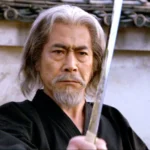The Impact of Ken Watanabe on International Cinema
Ken Watanabe is more than just a celebrated actor; he is a cultural ambassador who has played a pivotal role in bridging the gap between Japanese cinema and Hollywood. With his deep, resonant voice and commanding presence, Watanabe has brought authenticity and gravitas to every role he has played, making him one of the most recognizable and respected Japanese actors on the global stage. This post explores Ken Watanabe’s impact on international cinema, his most iconic roles, and how he has helped shape the perception of Japanese culture in the West.
1. Breaking Barriers with The Last Samurai (2003)
Role: Lord Moritsugu Katsumoto
Ken Watanabe’s breakout role in Hollywood came with The Last Samurai, where he portrayed Lord Katsumoto, a noble samurai leader who represents the dying traditions of Japan. Watanabe’s powerful performance earned him an Academy Award nomination for Best Supporting Actor, making him one of the few Japanese actors to be recognized at this level. His portrayal of Katsumoto resonated deeply with audiences worldwide, offering a nuanced view of Japanese culture and history at a time when such representations were rare in mainstream Western cinema.
Impact:
Watanabe’s role in The Last Samurai was groundbreaking, not only for his career but also for the visibility of Japanese actors in Hollywood. It opened doors for future collaborations between Japanese talent and Western filmmakers, showcasing the rich storytelling potential of Japan’s cultural heritage.

2. Bringing Humanity to the War Film: Letters from Iwo Jima (2006)
Role: General Tadamichi Kuribayashi
Directed by Clint Eastwood, Letters from Iwo Jima is a unique war film that tells the story of the Battle of Iwo Jima from the Japanese perspective. Watanabe played General Kuribayashi, a character that embodies the complexities and tragedies of war. His performance is both restrained and deeply emotional, offering a humanizing portrayal of the Japanese soldiers who are often depicted as faceless adversaries in Western war films.
Impact:
This film was a critical success and further solidified Watanabe’s status as a global actor capable of carrying a film that explores the nuances of history and culture. His role in Letters from Iwo Jima also demonstrated the importance of cross-cultural storytelling, where both sides of a conflict are given a voice.
3. Collaborating with Visionary Directors: Inception (2010)
Role: Mr. Saito
Ken Watanabe’s collaboration with Christopher Nolan in Inception was another milestone in his career. As Mr. Saito, Watanabe played a wealthy businessman who recruits the main characters for a mind-bending heist. His character is calm, calculating, and authoritative, bringing a sense of gravitas to the complex narrative. Watanabe’s role, though part of an ensemble cast, was crucial to the film’s plot and helped introduce him to a broader audience.
Impact:
Inception was a massive global success, and Watanabe’s participation in such a high-profile project further solidified his reputation as a versatile actor who can thrive in both Japanese and Hollywood productions. His work with Nolan also highlighted his ability to adapt to different filmmaking styles and genres, making him a sought-after talent in international cinema.
4. Revisiting Classic Japanese Roles: Godzilla (2014, 2019)
Role: Dr. Ishiro Serizawa
Watanabe’s role as Dr. Ishiro Serizawa in the Godzilla reboot series is a nod to his Japanese roots, as well as to the classic Kaiju genre that has been a staple of Japanese cinema for decades. In these films, Watanabe’s character serves as a bridge between the human world and the monstrous, embodying the respect and awe that the original Japanese films had for nature’s destructive power. His line, “Let them fight,” became iconic, capturing the essence of the franchise’s philosophy.
Impact:
By participating in the Godzilla series, Watanabe brought authenticity and a deep cultural connection to a franchise that has been loved by audiences worldwide. His role reinforced the global appeal of Japanese cinematic traditions and their continued relevance in contemporary filmmaking.
5. Advocating for Japanese Cinema and Culture
Beyond his roles in specific films, Ken Watanabe has been an advocate for Japanese cinema and culture, using his platform to promote Japanese storytelling in international markets. He has worked to ensure that Japanese culture is represented with dignity and respect in Hollywood, often serving as a consultant or cultural advisor on films involving Japanese themes or characters.
Impact:
Watanabe’s influence extends beyond his on-screen performances. His advocacy has helped to create opportunities for other Japanese actors and filmmakers in Hollywood, fostering a more inclusive and diverse film industry. His efforts have contributed to a greater appreciation and understanding of Japanese culture among global audiences.
Conclusion
Ken Watanabe’s impact on international cinema is profound and far-reaching. Through his diverse roles in both Japanese and Hollywood films, he has become a symbol of cultural bridge-building in the film industry. Watanabe has not only entertained audiences around the world but has also educated them about the richness of Japanese culture and history. His legacy continues to inspire a new generation of actors and filmmakers, both in Japan and internationally, ensuring that the cinematic connections he has helped to forge will endure for years to come.



